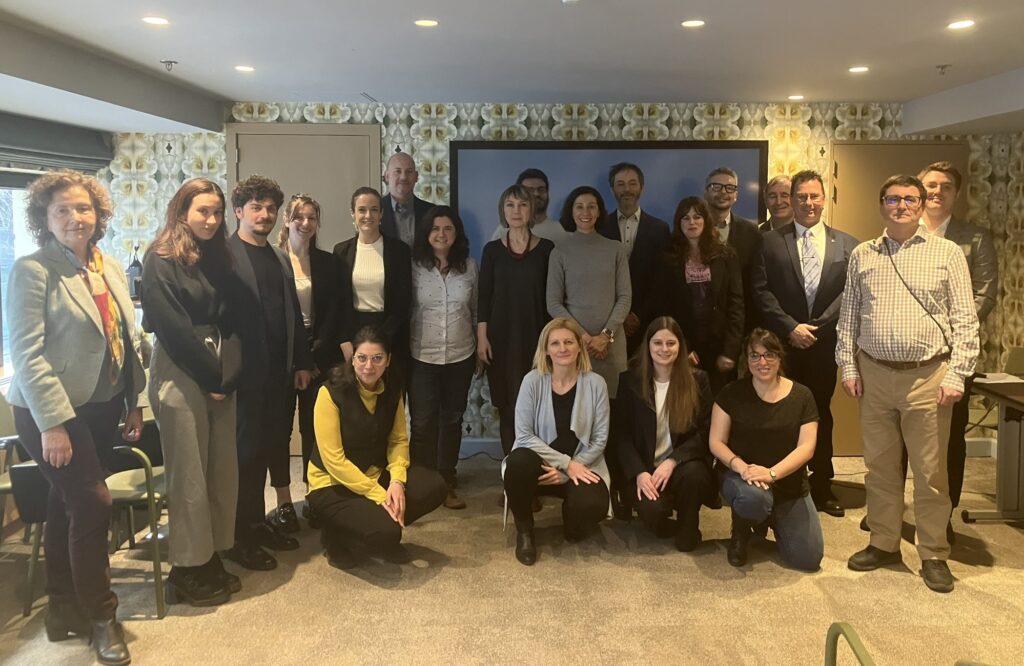Strengthening Integrity in Public Procurement: Highlights from the iMonitor Final Conference in Brussels
On 27 March 2025, the iMonitor project held its Final Conference in Brussels, bringing together civil society organisations, anti-corruption experts, EU representatives and public officials to present the project’s achievements and discuss more broadly the role of data and civic engagement in safeguarding public investment. The event marked the culmination of a two-year initiative combining data-driven risk assessment in public procurement with community-based civic monitoring, empowering citizens to identify corruption risks and collaborate with public actors for increased anti-corruption impact.
Public Procurement, Technology, and Civic Action
The conference opened with remarks from Jeroen Blomsma, Head of Sector for Integrity and Anti-Corruption at the European Commission’s DG JUST. He underscored the urgency of addressing corruption risks in public procurement, one of the sectors most vulnerable to corruption, according to a recent study by the European Commission. Blomsma stressed the need to leverage smart, tech-enabled tools such as those used in iMonitor, and the importance of sustained collaboration between authorities and civil society.
Mihály Fazekas, Scientific Director of the Government Transparency Institute, highlighted iMonitor’s innovative character and argued that, while corruption undermines trust in institutions and public services, structured civic participation, supported by training, data, and clear processes, can make a real difference and allow citizens to engage in more positive ways with the public administration, especially in collaboration with law enforcement and oversight agencies.
The iMonitor Model: From Data to Action
Bianca Vaz Mondo, Project Manager at GTI, highlighted iMonitor’s results: almost 200 monitors were trained, 27 organisations were involved, and 101 public contracts worth approximately €140 million were monitored across Italy, Lithuania, Romania, and the Catalonia region in Spain. The monitoring infrastructure and training programme developed for the project will now function as a basis for further scaling up in the project’s next phase (iMonitor 2.0), which will include France, Poland, Bulgaria, and Albania, and give special attention to climate-related and construction projects in monitoring activities.
A dedicated panel explored how iMonitor was implemented in each participating country. Despite differences in context, some key themes emerged: the importance of selecting contracts relevant to communities, the need for mentorship and support to monitors, and the value of hands-on engagement to build lasting monitoring networks. A common challenge in all countries were obstacles or delays in accessing public procurement documents required for the monitoring work.
Civic Engagement and Data: What Comes Next?
The final panel discussion brought together experts from ANAC, SG REFORM, and Transparency International to reflect on the bigger picture. While digital tools and open data are important, panellists stressed that institutionalised dialogue, long-term funding, and capacity-building for both CSOs and public officials are essential for meaningful oversight.
From Integrity Pacts and social auditing to open data platforms and investigative journalism, the range of approaches shows that there is no single solution, but rather a need for coordinated, sustained efforts.
Stay tuned as we launch iMonitor 2.0, bringing citizen-led monitoring to new countries, and continuing to build bridges between civic actors, public authorities, and data-driven public procurement oversight.
Agenda: here
Summary: here
Presentations:
About the iMonitor project – Bianca Vaz Mondo, GTI
Italy – Luigi Reggi, President and Giulia Renzi, Volunteer, Monithon Europe
Lithuania – Ieva Duncikaite, Project Leader, Transparency International Lithuania
Spain – Pilar Rodriguez, Colpis
Romania – Andrei Macsut, Romanian Academic Society

